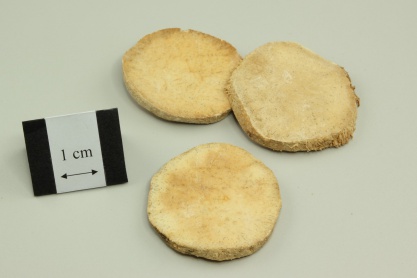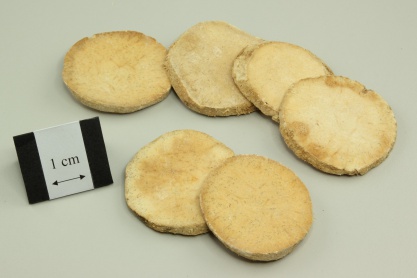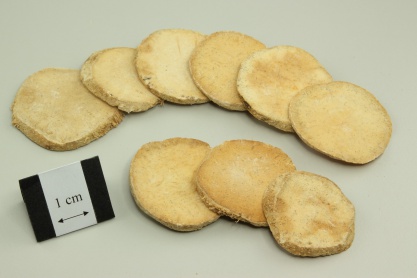澤瀉
- ENG
- Oriental Water Plantain Rhizome
- LATIN
- Alismatis Rhizoma
| Medicinal Group | Dampness-draining diuretic medicinal |
|---|---|
| Source | Dried tuber of Alisma orientalis (Sam.) Juzep. (Fam. Alismataceae) |
| Nature and Flavors | sweet; cold |
| Meridian Affinity | Kidney, Bladder |
| Actions | To cause urination, and remove damp-heat |
Family
Alismataceae
Part used
Root and Rhizome
Indications
Edema with oliguria; diarrhea, oliguria, vertigo due to retention of morbid fluid; acute urinary infection with difficult painful urination; hyperlipemia
Research Findings
- Herbs (consisting Rhizoma Alismatis) combined with western medicines showed better effect in treating tinnitus than using western medicines alone.[2]
Cautions
Use with caution during pregnancy and breast-feeding
Report on adverse effect
Can cause remnant kidney interstitial infiltration of inflammatory cells and tubule damage of 1/2 nephrectomized rat, remnant kidney interstitial infiltration of inflammatory cells and tubule damage [1]
Reference
Reference
- 祝建輝、鮑曉榮、何華平、張清 (2007)。<澤瀉腎毒性研究>。中藥藥理與臨床,3。
- Yang D.J. (1989). Tinnitus treated with combined traditional Chinese medicine and Western medicine. Zhong Xi Yi Jie He Za Zhi. , 9(5):270-1, 259-60.











